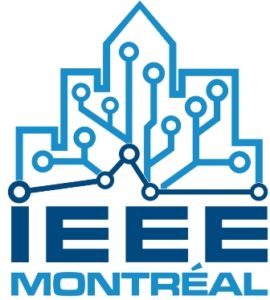SCOPE
SPEAKERS

Zhiguo Ding, School of Computing and Communications, The University of Manchester, LA1 4YW, UK
Short Bio: Zhiguo Ding received his B.Eng in Electrical Engineering from the Beijing University of Posts and Telecommunications in 2000, and the Ph.D degree in Electrical Engineering from Imperial College London in 2005. From Jul. 2005 to Apr. 2018, he had been working in Queen’s University Belfast, Imperial College, Newcastle University and Lancaster University. Since Apr. 2018, he has been with the University of Manchester as a Professor in Communications. From Oct. 2012 to Sept. 2023, he has also been an academic visitor in Prof. Vincent Poor’s group at Princeton University, and from Aug. 2022, he has also been an adjunct professor at Khalifa University. Dr Ding’ research interests are machine learning, B5G networks, cooperative and energy harvesting networks and statistical signal processing. His h-index is 76 and his work receives 25,000+ Google citations. He is serving as an Area Editor for the IEEE OJ-COMS, an Editor for IEEE TVT and OJ-SP, and was an Editor for IEEE TCOM, IEEE WCL, IEEE CL and WCMC. He received the best paper award of IET ICWMC-2009 and IEEE WCSP-2014, the EU Marie Curie Fellowship 2012-2014, the Top IEEE TVT Editor 2017, IEEE Heinrich Hertz Award 2018, IEEE Jack Neubauer Memorial Award 2018, IEEE Best Signal Processing Letter Award 2018, Alexander von Humboldt Foundation Friedrich Wilhelm Bessel Research Award 2020, and IEEE SPCC Technical Recognition Award 2021. He is a member of the Global Research Advisory Board of Yonsei University, a Web of Science Highly Cited Researcher in two disciplines (2019-2021), an IEEE ComSoc Distinguished Lecturer, and a Fellow of the IEEE.

Yuanwei Liu, School of EECS, Queen Mary University of London, E1 4NS, UK
Short Bio: Yuanwei Liu received the B.S. and M.S. degrees from the Beijing University of Posts and Telecommunications in 2011 and 2014, respectively, and the PhD degree in electrical engineering from the Queen Mary University of London, U.K., in 2016. He has been a Senior Lecturer (Associate Professor) with the School of Electronic Engineering and Computer Science, Queen Mary University of London, where he was a Lecturer (Assistant Professor) from 2017 to 2021. Prior to that, he was with the Department of Informatics, King’s College London, from 2016 to 2017, where he was a Post-Doctoral Research Fellow. His research interests are NOMA, RIS, Integrated sensing and communications, and machine learning. He received several research awards, including Web of Science Highly Cited Researcher 2021, the 2020 IEEE ComSoc Outstanding Young Researcher Award for EMEA, the 2020 Early Achievement Award of the IEEE ComSoc Signal Processing and Computing for Communications (SPCC) Technical Committee, the 2020 Early Achievement Award of IEEE Communication Theory Technical Committee, the 2021 IEEE ComSoc Best Young Professional Award Outstanding Nominee. Yuanwei Liu received several research recognition, including listing among the World’s Top 2% Scientists by Stanford University in 2020 and 2021, 2022 AI 2000 Most Influential Scholar Honorable Mention in Internet of Things, being ranked among Top 1% scientists in the world and Top 100 in United Kingdom in the broad field of Electronics and Electrical Engineering.
Sign up for email alerts to get the latest news and announcements for the 2022 IEEE Future Networks World Forum. If you have specific questions, contact us at FNWF@ieee.org.

















